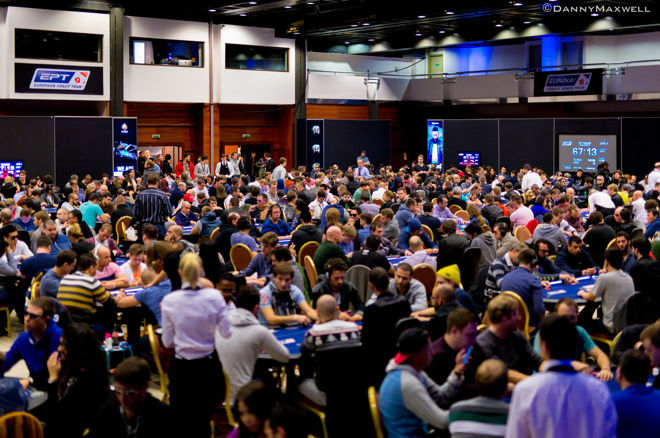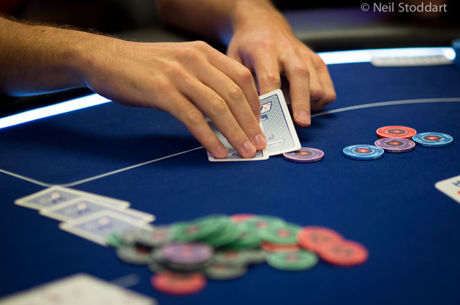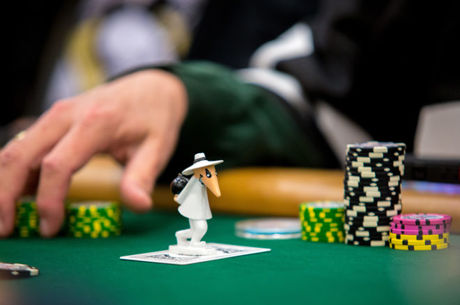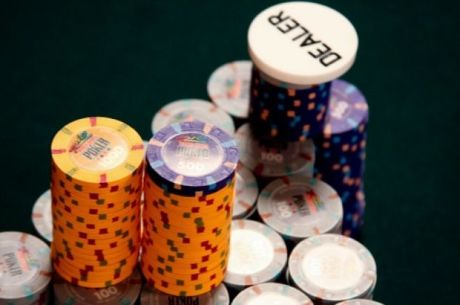Sutd Poker Strategy: Check-Raising, Part 3: Controversy

In the last two columns on this subject, we explored exactly what check-raising was and how to use it in a game. But what happens when you come to a game and there is a rule against check-raising? This is often the case in home games that consider themselves "friendly" games of poker.
Most of us know that check-raising is a valuable tool. We've read articles or chapters in poker books about it. So when we come across a home game we tend to think that they should allow check-raising.
I recall when I played a lot of home games that didn't allow check-raising. I remember my arguments then - which are still the ones I'd make today. Essentially, it's this: poker is a game of skill that involves deception. We all accept the fact that a bluff is a key part of the game. Bluffs are no more than falsely representing that your hand is strong when it is, in fact, weak. A check-raise is just the inverse of a bluff - pretending your hand is weak when it is, in fact, strong - in an effort to extract more money from your opponent. It is no more unethical than a bluff. As such it should surely be allowed. To bar it is to bar a key method of winning in poker: deception.
As logical as that is, it rarely was enough to convince the game's host to change the rules. Overtime I convinced one guy. But, generally speaking, I was unsuccessful.
I have since changed my method. Here's what I do now.
If there's a rule against check-raising I accept it. I don't make any suggestion, not even in passing, that there is anything wrong with the rule. In fact, I embrace it. If someone suggests changing it I side with the host in maintaining it. In some situations, I have even agreed not to invite back the player who argued in favor of check-raising. Here's my thinking.
The bottom line in poker is to make money. Accordingly, we serious players should embrace whatever rules there are that enhance our ability to make money and oppose those rules that hurt our profit.
Check-raising might seem like it would help the bottom-line of the good poker player. After all, I just spent two columns explaining how it can be used profitably. So it must be a good thing, no?
Well, actually, it might be a good thing to have in a game of skillful players, but it surely isn't a good thing to introduce into a game of unskilled "friendly" players. Here's why.
If players view check-raising as wrong, then they probably aren't very skillful. They probably view poker more as a fun way to pass some time than as a serious competition. They are probably too loose and too passive - the traits that unskilled players are most likely to possess. They probably call too much and raise too seldom.
These are ideal opponents for the most part. They are also the least likely people against whom a check-raise will be successful. I'm not saying that it doesn't work against them. In fact, I gave an example of how even these types of players can be exploited with a well-timed check raise. But those situations are the exception. For the most part, straightforward poker is the way to win money in these games.
So there's little advantage to the skilled player. But that alone isn't the reason to embrace the no check raise rule. Even this slight edge would still be an edge - if that's all there was to it. But much more is involved in changing a rule.
Think about it. Do you like to change the way you do things? If you had a game and someone came in and suggested that you change the rules, would you be likely to think kindly of this stranger? Probably not. You'd probably resent the SOB who tried to change your game. If you invited him back at all you'd probably make a point of trying to stick it to him at the table. At least I would!
The truth is that people resent being told what to do - especially when it comes to poker. They don't like being thought of as unskilled, unthoughtful players who doesn't even know the basic rules of the game. They certainly don't like to have this said to them by someone who is winning.
The reaction you're likely to get is either one of outright hostility or of wariness. The other players will be wondering what kind of a shark you are - and usually staying away from you. Sure, some of them may try to play back at you with undue aggression - but this isn't such a good thing either. Which would you prefer - a table full of docile opponents who let you draw cheaply or a bunch of players taking shots at you all night - just to prove that you're no better than they? Me, I'll go for the table full of lambs over the table full of wolves any day.
So, in general, if there's a rule against check-raising, accept it. Use your poker guile and smarts to extract money in all of the other myriad ways you can do without resorting to this move. Your host will surely enjoy your participation in his game - and that will be good for your bottom line!








